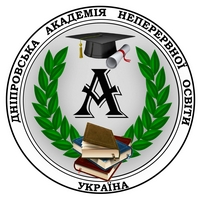INTEGRATION OF DIGITAL TECHNOLOGIES INTO THE EDUCATIONAL PROCESS: CHALLENGES AND PROSPECTS
Abstract
The article examines the urgent problem of integrating digital technologies into the educational process, which is becoming increasingly important in the modern information society. It is proved that digitalization has become an integral part of the lives of not only adults but also children, which is especially evident during global crises such as the COVID-19 pandemic and military conflicts. The main emphasis is placed on the potential of digital technologies to improve the quality of educational work, in particular, to increase students' motivation, develop their critical thinking, creativity and independence in learning. Particular attention is paid to the use of VR (virtual reality) and AR (augmented reality), which allow for the creation of interactive and individualized learning environments. These technologies open up new opportunities for engaging and effective learning, allowing students to immerse themselves in the educational process. However, the author also emphasizes the numerous challenges that accompany the process of digitalization of education, among which the issues of ensuring equal access to digital resources and ensuring information security are important. The article highlights the problems of ensuring a balance between digital tools and traditional methods of education that is critical for the effective development of children. In addition, the article discusses the issue of cybersecurity, which is becoming increasingly relevant in the context of the widespread use of digital technologies. The risks of cyberbullying and other online threats require the development of clear protection policies that ensure the safety of children on the Internet, as well as the training of teachers and students in the rules of safe behavior in the digital environment. In general, the article emphasizes the importance of integrating digital technologies into the educational process as a prerequisite for preparing children for life in a high-tech society. At the same time, the authors note that successful digitalization of education is possible only if the problems of equal access to technology, information security, and raising the level of digital literacy among teachers and educators are addressed. In the future, further research should be aimed at studying the impact of digital technologies on children's cognitive, emotional, and social development, as well as at developing new digital education tools that take into account safety and ethics.
References
2. Доценко С. О. Виховання в епоху цифровізації. Spiritual-intellectual upbringing and teaching of youth in the 21st century, 2022. № 4. С. 311–314.
3. Клименюк Н. Новий вимір виховання: соціалізація дитини в умовах цифрового простору. Вересень. 2023. Т. 3. № 98. С. 60–72.
4. Allcoat D., Hatchard T., Azmat F., Stansfield K., Watson D. Education in the digital age: Learning experience in virtual and mixed realities. Journal of Educational Computing Research. Р. 795–816.

 ISSN
ISSN  ISSN
ISSN 

